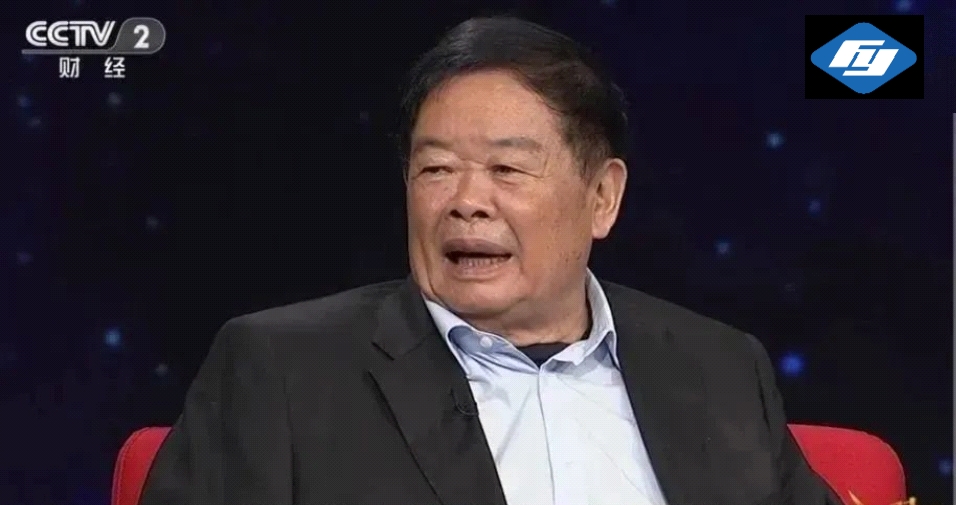Views: 95
About the striking differences between Chinese and American entrepreneurship.
Frans Vandenbosch 方腾波 15.11.2024

Back in 2000
Before moving to China, I spent nearly my entire career as a project and program manager at MAGNA, a large multinational automotive conglomerate headquartered in Toronto. In 2001, when MAGNA was still an engineering-focused company, I left my well-paid job there to move to China.
Many years later, once I was established and well-versed in the Chinese automotive and plastics industries, MAGNA suddenly approached me in China, reluctantly requesting me to return to my employer. Naively, after tough negotiations over terms, conditions, and compensation, I eventually agreed.
That was 2012 – and, in hindsight, it was a mistake. I hadn’t realized that during my time in China, MAGNA had shifted from an engineering-focussed organization to a shareholder-driven one, where engineers were increasingly overshadowed by accountants, lean experts, and cost-cutters.
The project
After successfully relocating several MAGNA’s production facilities away from Western Europe to Turkey, Eastern Europe, and other regions, I took on a high-stakes project for a prominent German automaker. The newly developed product was considered to push the boundaries of technological feasibility. After numerous trial-and-error prototype tests, we achieved stable production. The component’s design incorporated no fewer than five patents, some of which were on the edge of what was legally permissible.
To avoid high transportation costs and import duties, almost all car manufacturers nowadays have assembly plants in Europe, the US and China. After setting up production units in Europe and North America, the question arose to also set up a production facility in China. The business plan for the production unit in Kunshan was excellent and profitable, easy, a copy/paste of the factory in the US and EU. But that was without counting on the shareholders: In Toronto they did not want to know anything about investing in China. They asked me bluntly to set up the factory in Thailand, which would make the whole project unprofitable because of the high transportation costs.
It was my uncomfortable task to convey the news that MAGNA did not want to invest in a production plant in China to the customer, the car manufacturer in Germany. They were furious.
Barely a week later I was summoned to Stuttgart to hear there that, because of the China-aversion of MAGNA, they wanted to transfer my “baby”, my development work, to a Chinese competitor. I was stunned.
Clashing cultures
Not long after, I found myself in Stuttgart at my client’s headquarters. This was back in 2014, when Fuyao, led by chairman Cao Dewang, was still an emerging competitor with a limited footprint in the global automotive industry—a time before their famed “American Factory” journey in Moraine, Ohio, USA.[i]
At the meeting table, around a dozen business leaders—German, French, and Chinese—each presented their strategic plans. Alongside them were translators and assistants, navigating discussions centred on money, business ethics, loyalty, fairness, and cooperation. Tensions ran high with mutual recriminations. Everything unfolded in English, though only two individuals could speak Chinese.
During a brief coffee break, Cao, noticing my discomfort throughout the meeting, approached me and quietly said, “我不想偷走你的宝宝” (I don’t want to steal your baby). I responded, “我知道这不是你的错” (I know, it’s not your fault).
Ultimately, the Chinese project was lost for my company, with Fuyao taking over. In the following weeks, I transferred the CAD files, patent rights, and manufacturing process data to them. Initially, they struggled to meet the quality standards of the European-made products. However, within six months, Fuyao succeeded in improving their quality to an acceptable level for our client in Beijing.
Cao Dewang
Cao Dewang, born in May 1946 in Fuqing, Fujian Province, is a renowned Chinese entrepreneur and the chairman of Fuyao Group, one of the world’s largest glass manufacturers. Known for his philanthropy, business acumen, and strong Buddhist faith, Cao’s journey is one of resilience, vision, and an enduring commitment to giving back.
Cao came from a wealthy family but carved his own path in the business world. In 1983, while working as a sales manager at a glass factory that produced glass for water meters, he saved enough money to buy out the factory. Just two years later, he foresaw the potential in automotive glass manufacturing as European automakers expanded into China. He pivoted his factory’s focus to meet this demand, establishing the Fuyao Group in 1987. Fuyao grew rapidly, going public on the Shanghai Stock Exchange in 1993.
Cao’s success garnered international recognition, and in 2009, he was named Ernst & Young’s World Entrepreneur of the Year. Although he eventually handed the role of chief executive to his son in 2005, Cao remained Fuyao’s chairman and continued to guide the company’s growth. In 2019, the documentary *American Factory* followed Cao’s efforts to expand Fuyao into the U.S. His mission led to the relocation of nearly 200 Chinese employees to help establish the new American factory. However, cultural and operational differences created challenges, with American workers advocating for unionization in response to perceived workplace safety and pay issues.
Beyond business, Cao is one of China’s most generous philanthropists. He established the Heren Foundation, donating 300 million shares of Fuyao stock. In 2012 alone, he contributed $580 million to charitable causes, expressing a belief that wealth is more meaningful when shared with others and used to educate the next generation.
A devout Buddhist, Cao has chronicled his life and philosophy in an autobiography titled *A Heart like Bodhi*, published in 2014. He is married to Chen Fengying; they have three children. Through his business, philanthropic, and personal life, Cao Dewang exemplifies a vision of leadership centred on both achievement and generosity. [ii]
Fuyao
Today, the once insignificant Fuyao Group has grown to be by far the world’s largest leader in the automotive glass industry. No American or European company is able to market automotive glass products of the same technological level as Fuyao, at super-competitive prices. The American automotive glass companies have been forced out of the market and the large (French) automotive glass companies are struggling to win significant projects.
The “Forced Technology Transfer” myth
The idea of “forced” technology transfer from Western to Chinese enterprises is a myth often perpetuated by Western media. A prime example is MAGNA’s hesitation to invest in China, which ultimately forced my client—a renowned German carmaker—to partner with a Chinese company to transfer the required technology.
At the time, the Chinese manufacturing capabilities could not match those in Germany. However, their smart engineers quickly adapted, demonstrating exceptional learning capabilities. In the end, they produced products that matched German quality standards.
MAGNA’s short-sighted approach proved costly. Not only did they lose a significant business opportunity in China, but they also enabled a competitor to rise and dominate the global market. This highlights the stark contrast between China’s long-term business strategies and the short-term, fast-return mindset of many Western shareholder-driven corporations. The lesson? Vision and patience can define the future of global competition.
[i] The documentary “American Factory” was recorded from 2015 until the end of 2017
Official Trailer Netflix: https://youtu.be/m36QeKOJ2Fc
The entire movie at Internet Archive: https://archive.org/details/american-factory-2019-documentary
[ii] Cao Dewang at Wikipedia: https://en.wikipedia.org/wiki/Cao_Dewang



I really appreciate this article because it was written by a non-Chinese who speaks Chinese and is NOT an academic or “journalist.” So much information about China comes from academics who don’t have any connection to the real economy of China. These academics and journalist mostly speak to a class of people who have never produced anything in their life, so their analysis about China is at best very incomplete and at worst worthless.
I think Frans is the only man who publishes in English about China who has actually participated in manufacturing in China and speaks Chinese. Which makes posts like these very valuable.